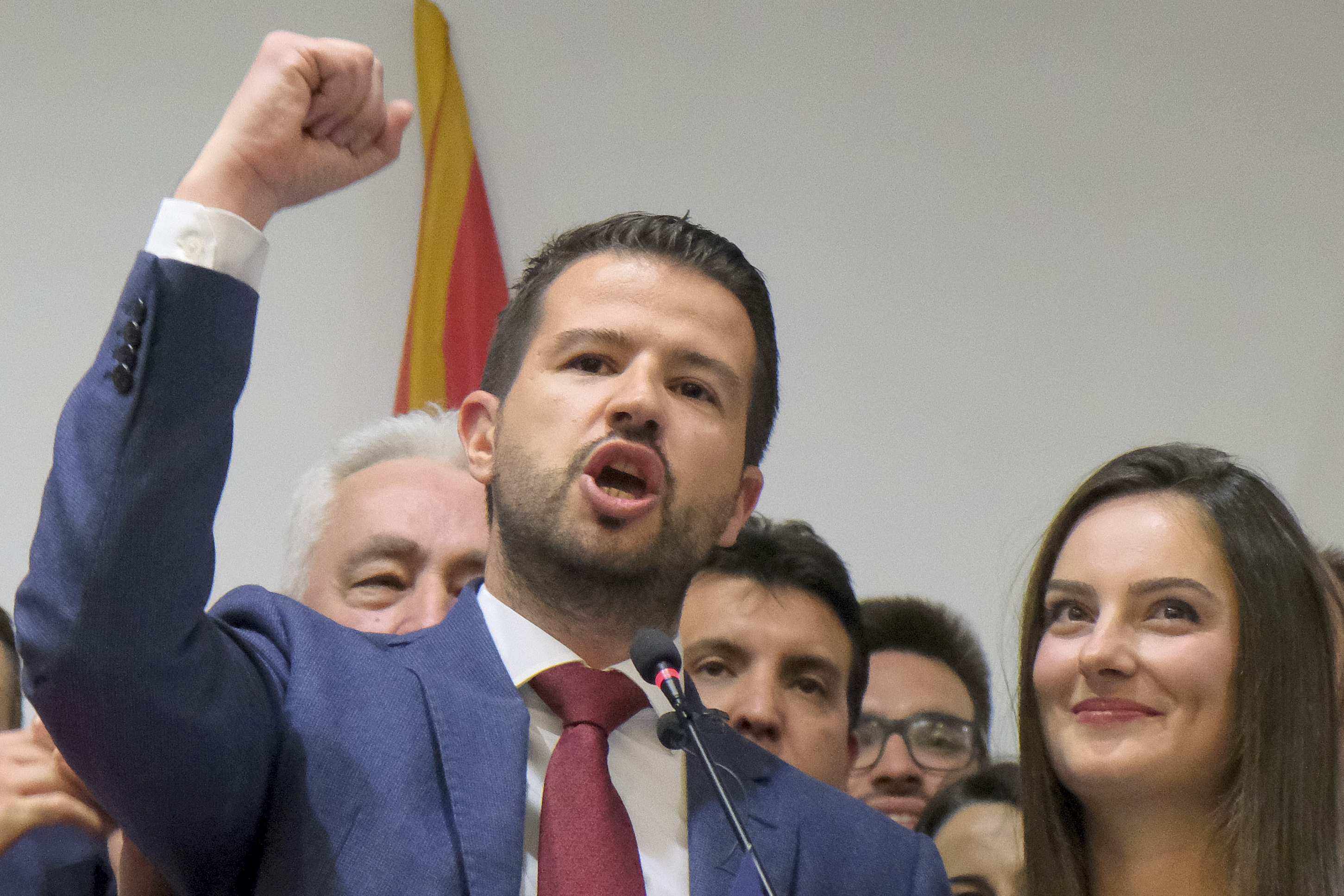Montenegro
Change in Montenegro: Long-term president voted out of office

Jakov Milatović
© picture alliance / ASSOCIATED PRESS | Risto BozovicThe pre-deciding factor came already on the evening of the first round of voting on 19 March, when the majority of the losing candidates called on their constituents to vote for Milatović in the runoff in order to enable a change. This wiped out incumbent Djukanović’s lead (1st round: 35%) over Milatović (1st round: 29%). Last Sunday's runoff election – with a turnout of almost 70 percent, which is high for Montenegro – practically became a referendum on Milo Djukanović’s future, who had led the small Balkan republic's fortunes for thirty years. The „father of the country“ managed to garner only 41.1 percent of the vote, while opposition candidate Milatović more than outperformed him with 58.9 percent.
That Milatović, a 36-year-old internationally trained economist, would become the winner over Montenegro’s most powerful politician was considered virtually impossible only six weeks ago. The anti-corruption movement „Europe Now!“, founded barely a year ago, first sent its chairman Milojko Spajić into the presidential race, but he was rejected as a candidate because of a dual citizenship that is illegal in Montenegro. Only then did Milatović, then a candidate for mayor of the capital Podgorica, stand for election as head of state.
It was a different story for Milo Djukanović, who has only fought rearguard battles since the defeat of his Democratic Party of Socialists (DPS) in the August 2020 parliamentary election. The long-term president had no choice but to run again as a presidential candidate to prevent a split or dissolution of his party. It cannot be ruled out that Djukanović will once again lead the DPS in the upcoming parliamentary elections on June 11.
Milatović knows how to convince
The election campaigns of the two opponents were adapted to the target groups of the respective candidates, whereby Jakov Milatović had to perform the greater balancing act. His electorate ultimately consisted of three completely different groups: pro-European voters, the not a few pro-Serbian forces in the country, and ultimately protest voters of all ages and ethnic backgrounds who wanted to put an end to the „Djukanović system“, which was considered corrupt. Accordingly, Milatović strove to increase the intersection of this group, and he succeeded.
The pro-Serbian parties now approve of the country’s European path, while Montenegro’s pro-European citizens have accepted a state treaty concluded years ago with the Serbian Orthodox Church. In addition, Milatović promised a stronger fight against corruption, which is likely to refer primarily to the top echelons of the police and judiciary. They have repeatedly been accused of links to criminal groups, which in some cases led to arrests within the judiciary. Overcoming ethnic conflicts, a clearly pro-European path with the implementation of all necessary reforms to this end, a strengthening of the rule of law, and economic policy measures to maintain living standards became the cornerstones of Milatović’s campaign.
Djukanović, on the other hand, wanted to present himself as a „bourgeois candidate“, but in terms of content he ran a fear campaign: he painted the danger of a „return to the Middle Ages“ on the wall, with an incorporation of Montenegro as part of Greater Serbia in the event of his defeat. With these backward-looking messages, he was able to reach only his core constituency, but left swing voters with the impression that he was more interested in division between Serbs and Montenegrins than in unification. In any case, the tactic of compensating for Milatović’s large lead in the country's few large cities did not work. Djukanović’s political future after the end of his term in mid-May is uncertain. When a journalist tried to ask a question about a possible candidacy for prime minister on election night, she was booed by Djukanović’s supporters.
Everything cleared up? By no means!
In fact, it is not entirely certain that the parliamentary elections Djukanović called for on 11 June will actually take place. For one thing, the Constitutional Court has yet to clarify whether it is within the president’s authority to dissolve the parliament without its consent. If the court negates this, parliamentary elections would have to be held in August 2024 at the latest. The irony is that both Djukanović’s DPS party and the pro-Serbian Democratic Front (DF) – both with completely different political orientations – now fear an early ballot.
The DPS is afraid both of the apathy of its own electorate and of now entering the race as a losing party. The pro-Serbian DF, which currently holds one-third of the seats in parliament, can currently only dream of a repeat of that result, as its leader Andrija Mandić won only 19 percent of the vote in the first round of the presidential election. In the upcoming parliamentary election, the party must expect heavy losses, as the „Europe Now!“ movement is considered to benefit from Milatović’s recent success.
Polls show that five out of six Montenegrins see their future within the EU. In order to gain membership – Milatović spoke on election night of achieving this within five years – a sufficiently large and reform-minded parliamentary majority must be created. This will hardly be possible without the participation of pro-Serbian parties. With his victory in the presidential election, Milatović has created a favorable starting position for forging a viable compromise with traditionally pro-Serbian parties. This was still missed after the first defeat of Djukanović’s DPS in the August 2020 parliamentary elections.
Dušan Dinić is Senior Project Coordinator at the Belgrade office of the Friedrich Naumann Foundation for Freedom.
